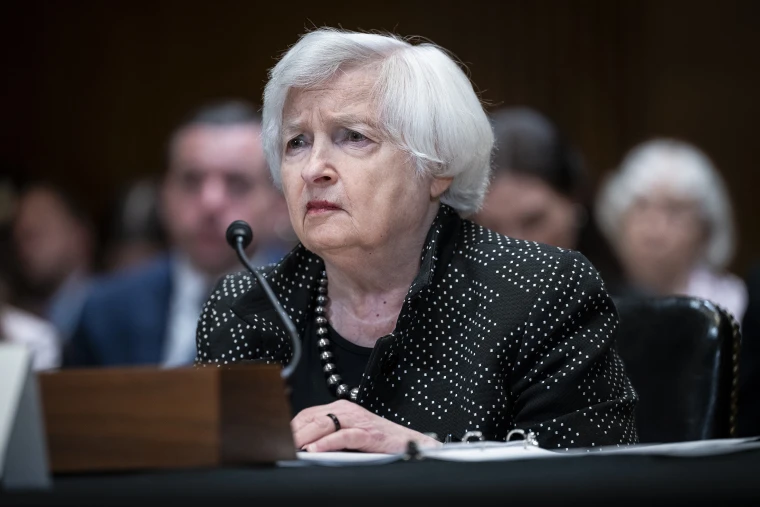Janet Yellen issues warning to Congress as US nears debt limit
Treasury Secretary Janet Yellen wrote to congressional leaders on Friday afternoon, stating that her agency will have to begin implementing “extraordinary measures,” or unique accounting techniques, as early as 14 January to keep the country from reaching the debt ceiling. Yellen wrote in a letter to House and Senate leadership that “Treasury expects to hit the statutory debt ceiling between January 14 and January 23.” If the government fails to meet the debt ceiling, which has been suspended until January 1st, extraordinary measures will be taken.
In the past, the department has used accounting tricks, also referred to as extraordinary measures, to keep the government running. However, the government faces dangers after such provisions expire. However, unless Congress and the president agree to remove the cap on the US government’s borrowing capacity, the US faces default danger when those provisions expire. “I humbly request that Congress take action to safeguard the United States’ full faith and credit,” she stated. The announcement follows Joe Biden’s signing of a bill last week that prevented a government shutdown but excluded Donald Trump’s main debt demand to increase or suspend the country’s debt ceiling.

Congress only passed the package after a heated internal Republican discussion about how to respond to Trump’s demand. Trump stated in a statement, “Anything else is a betrayal of our country.” Tech entrepreneur Elon Musk, who is now one of the president-elect’s closest allies and has appointed him to lead an ill-defined new unit called the “department of government efficiency” (Doge), reposted a portion of an address by Milton Friedman, the well-known free market economist, on X a few hours after Yellen’s statement. Although Musk refrained from immediately responding to Yellen’s comments, the repost brought Friedman’s discussion of the “free lunch myth … that government can provide goods and services at nobody’s expense” to light.
Friedman stated in the speech that “someone always pays – and usually it’s you,” referring to the broader populace. “Wise words from a true genius,” said Musk. Following a lengthy discussion about how to finance the government in the summer of 2023, lawmakers drafted the Fiscal Responsibility Act, which included delaying the country’s $31.4 trillion borrowing ability until January 1. However, Yellen noted that a scheduled redemption of non-marketable securities held by a federal trust fund related to Medicare payments is expected to temporarily reduce the debt on January 2. Therefore, she stated, “[the] treasury does not expect that it will be necessary to start taking extraordinary measures on January 2 to prevent the United States from defaulting on its obligations.”
“Extraordinary measures” usually refers to a government attempt to continue funding its operations for as long as possible by reallocating funds and halting savings plan investments for government workers. Political parties have long engaged in political squabbling over the US Treasury debt. Politicians have attempted to increase, prolong, or amend the debt ceiling more than 78 times since 1960. The current federal debt, which has grown during both Republican and Democratic administrations, is approximately $36 trillion. Additionally, the cost of borrowing for the government increased due to the coronavirus outbreak, and next year’s debt service will surpass national defense spending.
Earlier this month, Yellen expressed her regret that the Biden administration did not make “more progress” on the national debt. At the CEO Council event hosted by the Wall Street Journal, Yellen stated, “Well, I am concerned about fiscal sustainability, and I am sorry that we haven’t made more progress.” “I think that the deficit needs to be reduced, particularly in light of the current higher interest rate environment.” Yellen cited the nation’s debt interest costs, calling them “one of the largest items responsible for the increase in the budget deficit.” Republicans, who will control the White House, the House, and the Senate in the coming year, have ambitious plans to extend Trump’s tax cuts from 2017 and other initiatives, but they are divided on how to finance them.


Comments are closed, but trackbacks and pingbacks are open.